This Maqluba recipe is a timeless family favorite—flavorful, comforting, and a true traditional Middle Eastern delight!
This Maqluba recipe—also spelled maqlooba, makloubeh, or maqlouba—is a stunning upside-down chicken and rice dish from the Levant region. Popular in Jordan, Palestine, Syria, and Lebanon, maqluba features tender meat, seasoned rice, and vegetables layered in a pot and flipped dramatically onto a serving platter.
The signature “flip” not only makes for a gorgeous presentation but also infuses the rice with the savory richness of the meat and spices. Traditionally served with cool yogurt salad or a Salata Arabiya, Maqluba is a showstopping main course full of comforting Middle Eastern flavor.
Growing Up with Maqluba
Growing up in Jordan, Maqluba was a cherished staple in our home. My mother would prepare it at least twice a month—sometimes with golden, tender cauliflower, other times with savory eggplant slices—but never both at once. And always, it was served alongside cool, creamy yogurt or a crisp Salata Arabiya.
For this version of the maqluba recipe, I combined my love for roasted cauliflower with my husband’s favorite—eggplant—for a veggie-packed twist that feels both traditional and fresh. Instead of deep frying, I roast the vegetables for a lighter, healthier approach without compromising on flavor.
I know this dish can seem complex at first glance, but don’t worry! I’ve broken it down into simple, step-by-step instructions. It’s easier than it looks and incredibly rewarding to make. This recipe yields a generous portion—perfect for four people over a couple of days (like we enjoy it at home), or for feeding a hungry group. You can also halve the ingredients for a smaller batch.
Get ready to flip your pot and wow your table with a beautiful, flavorful chicken maqluba that’s sure to impress!
What Vegetables to Use in Maqluba
The beauty of maqluba is its adaptability, especially when it comes to vegetables. This version features roasted eggplant and cauliflower, but feel free to customize based on what you love or have on hand.
Classic combinations include:
- Eggplant and cauliflower (as in this recipe)
- Potatoes and cauliflower for a heartier, starchy base
- A colorful mix of carrots, peas, zucchini, or green beans for a variety
You can go with just one vegetable or combine a few for extra flavor and texture. Roasting instead of frying keeps it lighter without sacrificing that rich, layered taste.
What Meat Works Best in Maqluba
Maqluba traditionally includes meat, but it’s just as satisfying in a vegetarian version. For meat lovers, both chicken and lamb are classic choices:
- Bone-in chicken thighs or legs hold up well during long simmering without drying out, making them ideal for chicken maqluba.
- Lamb’s shoulder adds richness and tenderness that melts into the dish.
- Beef can be used, but choose a cut that cooks quickly and stays tender.
No meat? No problem—just load up on roasted veggies and flavorful broth. The result is a hearty vegetarian maqluba that’s just as satisfying.
What Kind of Rice to Use in Maqluba
Choosing the right rice is key to mastering maqluba. For best results, go with basmati rice—a long-grain variety that’s perfect for layered rice dishes like this.
Why basmati?
- It holds its shape well during slow cooking
- It absorbs flavor without turning mushy
- It delivers light, fluffy, and separate grains—exactly what you want in a perfect maqluba recipe
Tips for Perfect Rice in Maqluba
- Rinse the rice thoroughly in cold water until it runs clear. This removes excess starch and prevents clumping.
- Soak the rinsed rice in room-temperature water for about 20 minutes. This helps it cook evenly and stay fluffy.
- Avoid over-soaking (more than 20 minutes), which can cause the grains to break apart during cooking.
With the right rice and prep, you’ll end up with a beautifully textured chicken maqluba or vegetarian version that feels light yet deeply satisfying.
The Aromatic Soul of Maqluba
Spices are the heart and soul of a flavorful maqluba recipe. They infuse the rice, meat, and vegetables with warmth, depth, and irresistible aroma. Here’s a closer look at the key players:
- Cinnamon Sticks: Whole cinnamon adds subtle sweetness and a warm base that gently infuses the broth and chicken as it simmers.
- Bay Leaves: These add a layer of earthy, herbal notes that balance the richness of the dish.
- Lebanese 7 Spice: A must-have for many Middle Eastern recipes, this blend typically includes allspice, black pepper, cloves, cinnamon, nutmeg, and sometimes ginger. It brings complex warmth and a deep aromatic finish.
- Hawaj (or Hawaij) Spice: My personal favorite and secret weapon! This Yemeni-origin blend includes over 10 spices—like cardamom, turmeric, cumin, and black pepper—and brings incredible depth.
- No Hawaj? Use 1½ teaspoons each of cardamom and turmeric for a close approximation. The flavor won’t be identical, but it still delivers beautiful warmth.
The Maqluba Master Pot: Choose Wisely, Flip Confidently
Achieving that iconic upside-down reveal starts with the right pot. Here’s what to consider when choosing the best pot for maqluba:
-
Non-Stick Is Key: A non-stick pot ensures a smooth, clean release when you flip. No more heart-stopping moments where half the rice sticks to the bottom!
-
Go Wide with Straight Edges: Choose a pot that’s wider than it is tall, with straight sides. This allows for even steam circulation and helps the top layers (which become the base once flipped) cook through evenly.
-
Size Matters: If your pot is narrow or tall, scale down the recipe. A smaller maqluba will cook more uniformly and still look beautiful when plated.
-
Bonus Flip Tip: Use a pot with folding or flat handles if possible. It gives you a better grip and more control when inverting the pot onto a platter for that satisfying, dramatic maqluba flip.
What to Serve with Maqluba
Maqluba is a complete meal on its own, but traditional sides and toppings can elevate it into a full Levantine feast. Here are some classic pairings to serve alongside your maqluba recipe:
- Plain yogurt – A cool, creamy contrast to the warm spices and savory rice
- Cucumber yogurt salad (Khiyar bi Laban) – Light, tangy, and refreshing
- Salata Arabiya – A chopped Middle Eastern salad with tomatoes, cucumbers, parsley, and a lemony olive oil dressing
- Fattoush – Toasted pita, crisp veggies, and sumac dressing for extra crunch and flavor
Top your chicken maqluba with:
- A sprinkle of fresh parsley for color and brightness
- Toasted pine nuts, cashews, or slivered almonds for richness and crunch
Choose side dishes that complement—not overpower—your dish, and scale servings depending on the crowd. And if you run into minor rice texture issues, don’t worry—I’ve included simple troubleshooting tips in the recipe notes to help you nail it every time.
Step-by-Step Instructions
Prep the Chicken:
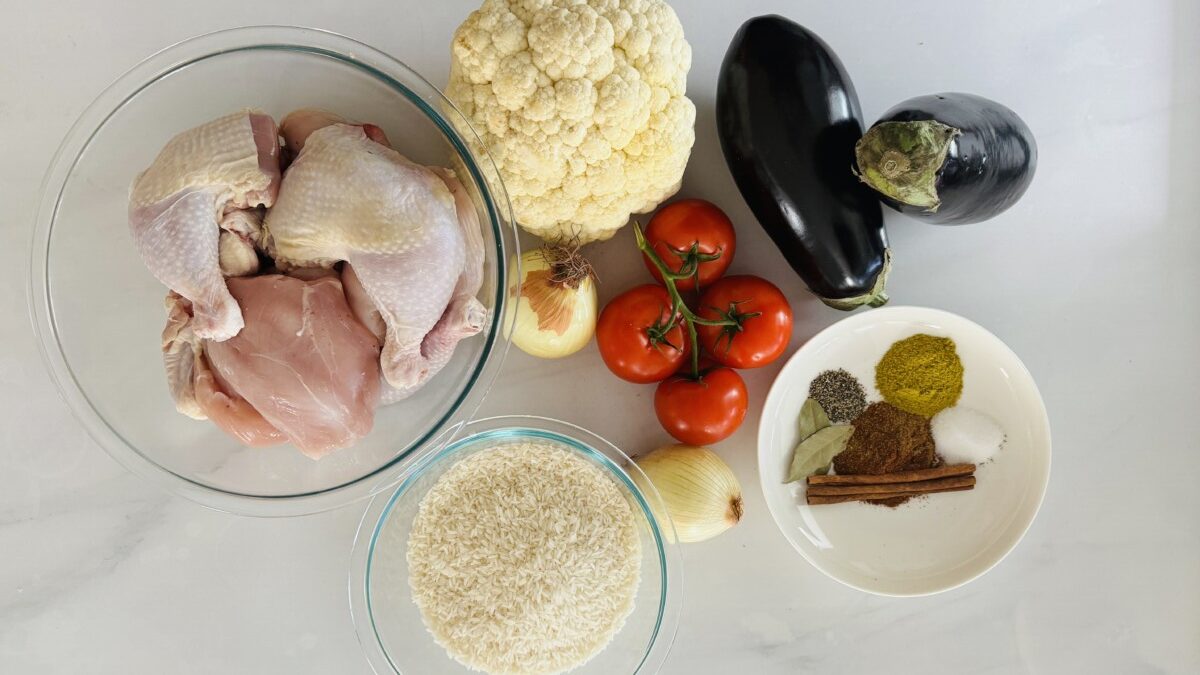
Prep and Roast the Eggplant
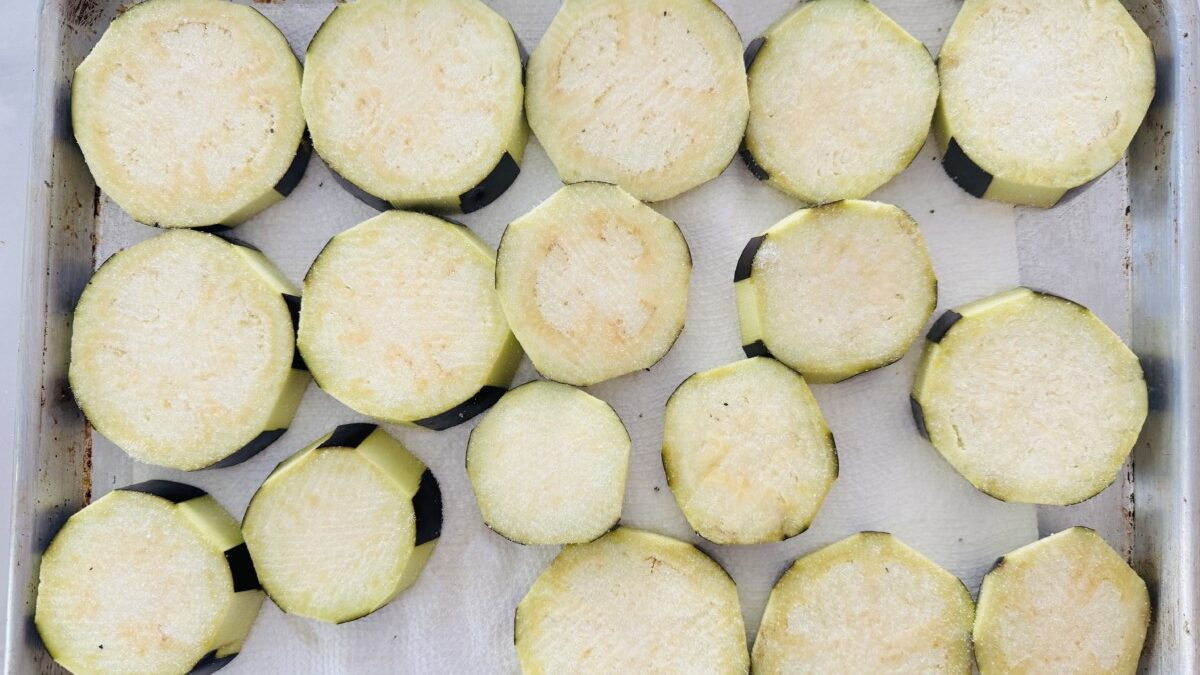
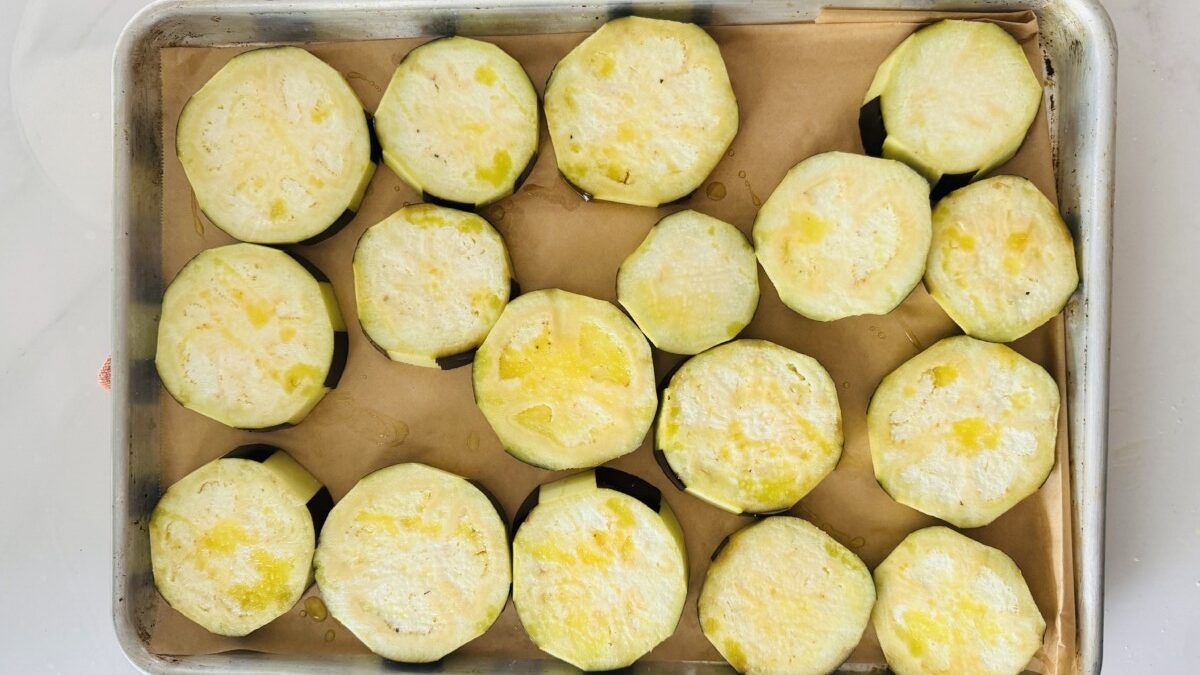
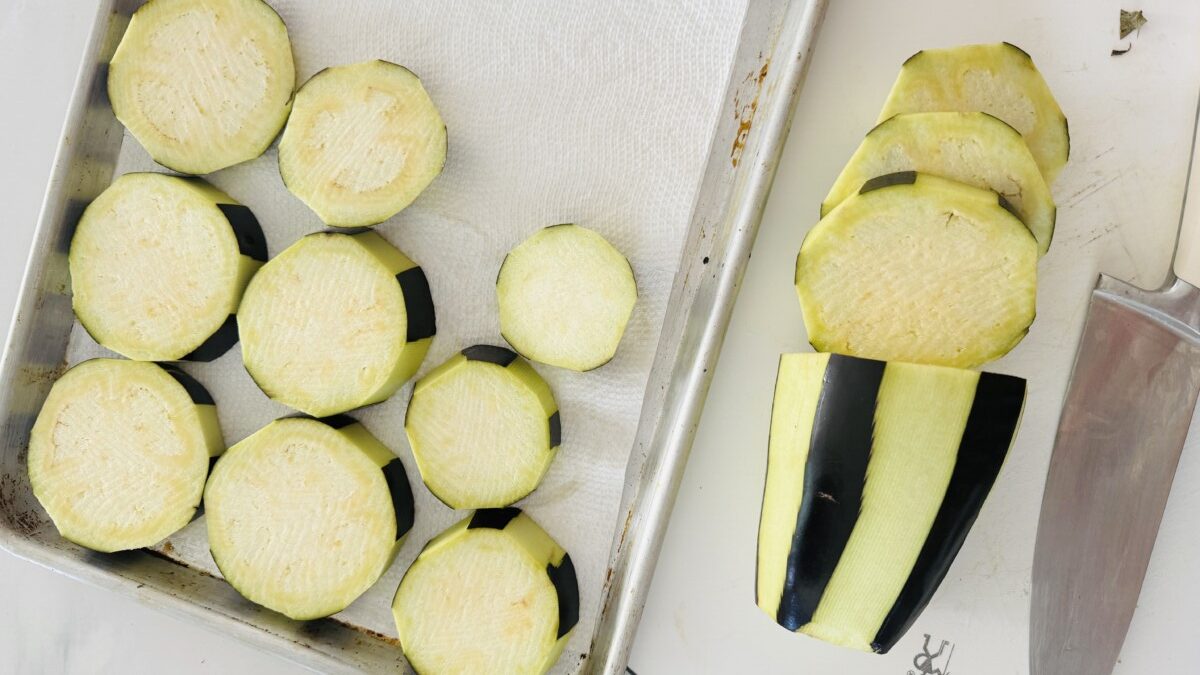
Meanwhile, preheat your oven to 425°F (220°C). Rinse and pat the eggplant slices dry, then arrange them on a parchment-lined baking sheet. Drizzle with 2 tablespoons of olive oil and roast for 30 minutes, flipping halfway through. Set aside once golden and tender.
Prep the Cauliflower
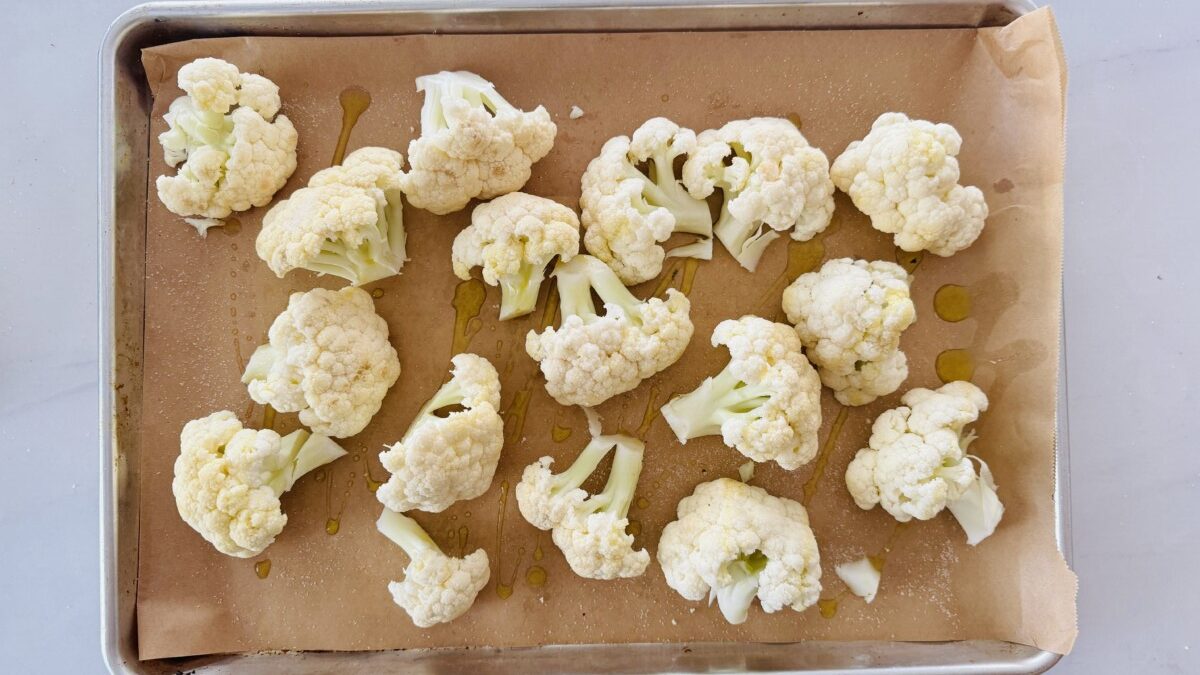
Sauté Onions and Toast the Spices
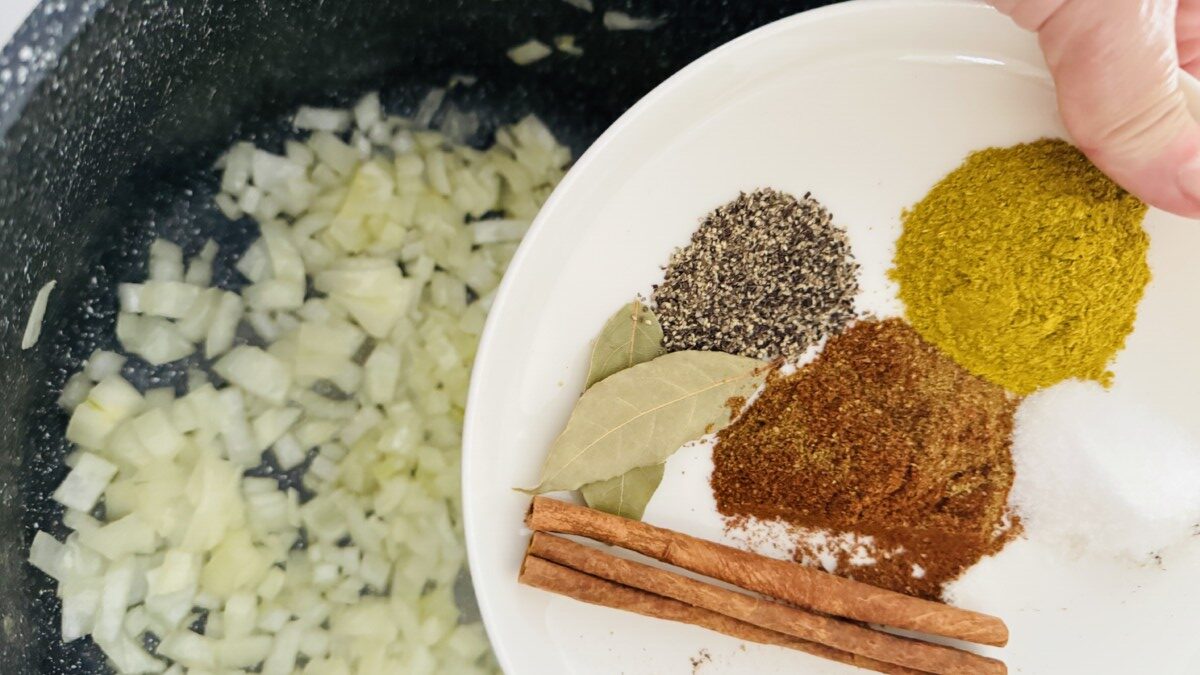
Add the cinnamon sticks, bay leaves, 2 tablespoons of Baharat, 1½ tablespoons of Hawaj, 1 tablespoon of salt, and 1½ teaspoons of black pepper. Stir well to coat the onions in the spices, and cook for another 5 minutes until fragrant.
Brown and Simmer the Chicken
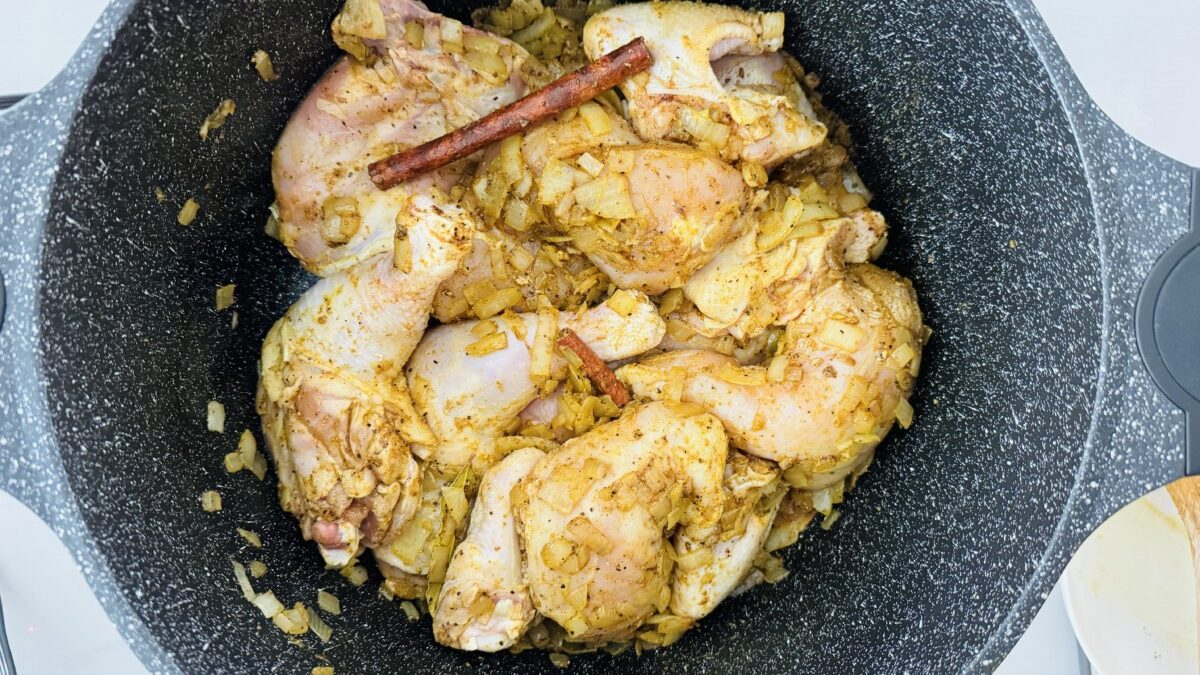
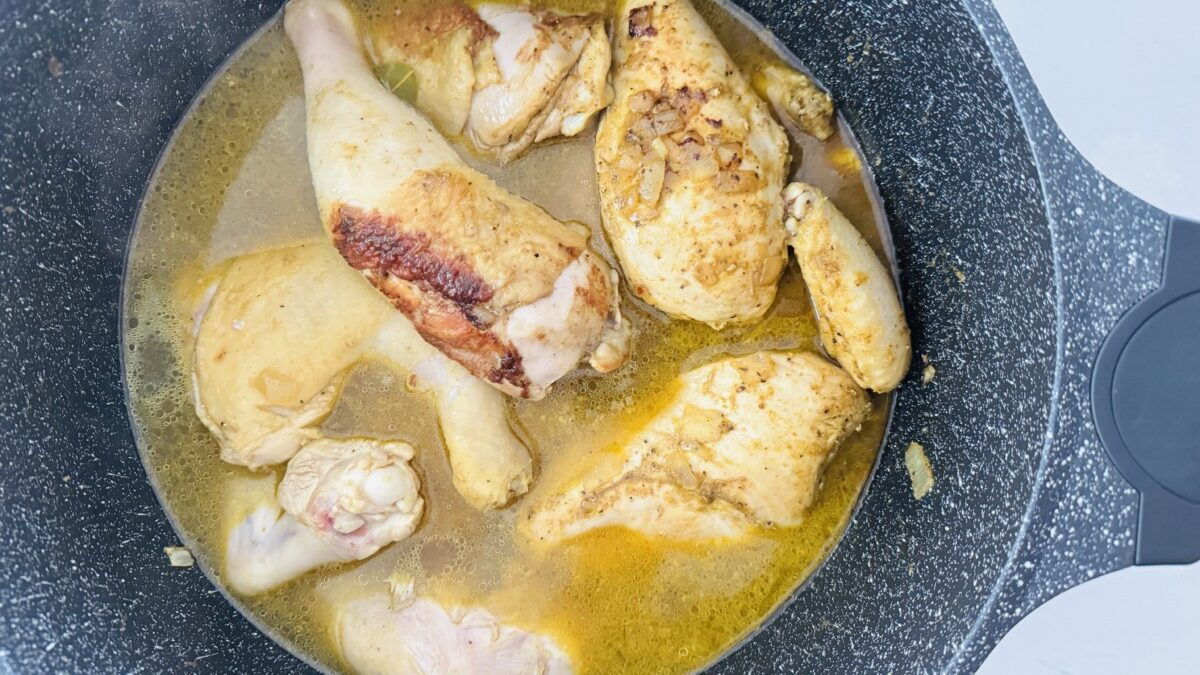
Pour in 5 cups of water, then bring the mixture to a boil. Once boiling, reduce the heat to low, cover the pot, and let it simmer for 25 minutes, allowing the chicken to cook through and the flavors to deepen.
Rinse, Soak, and Season the Rice
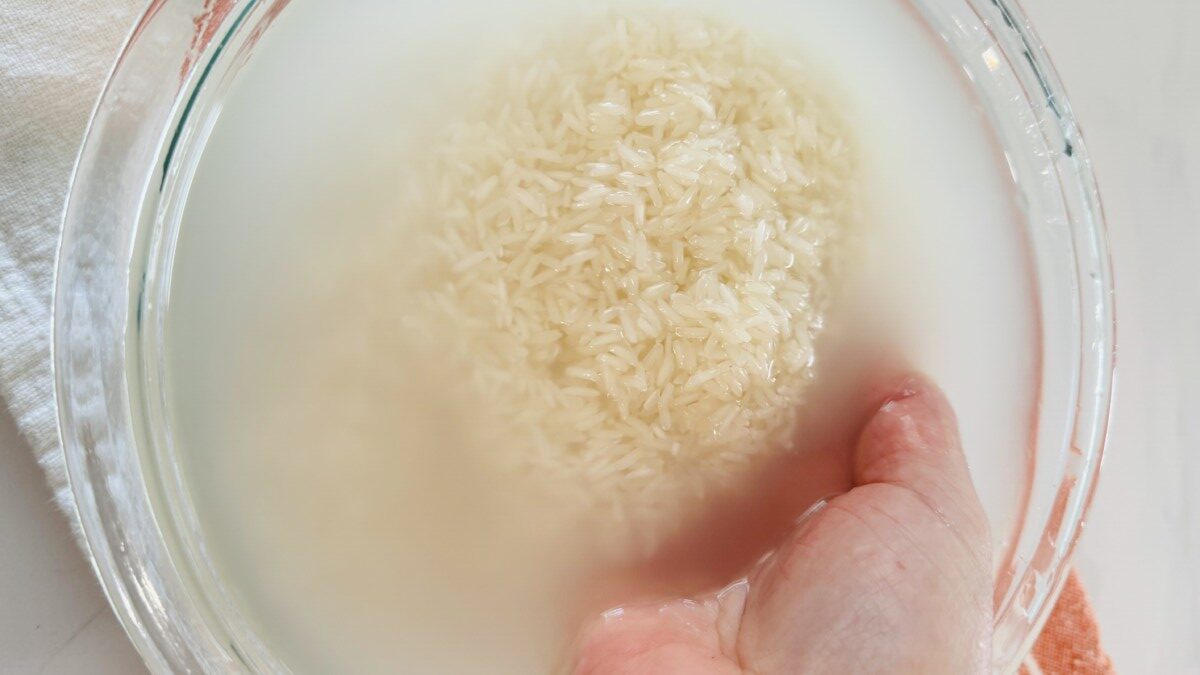
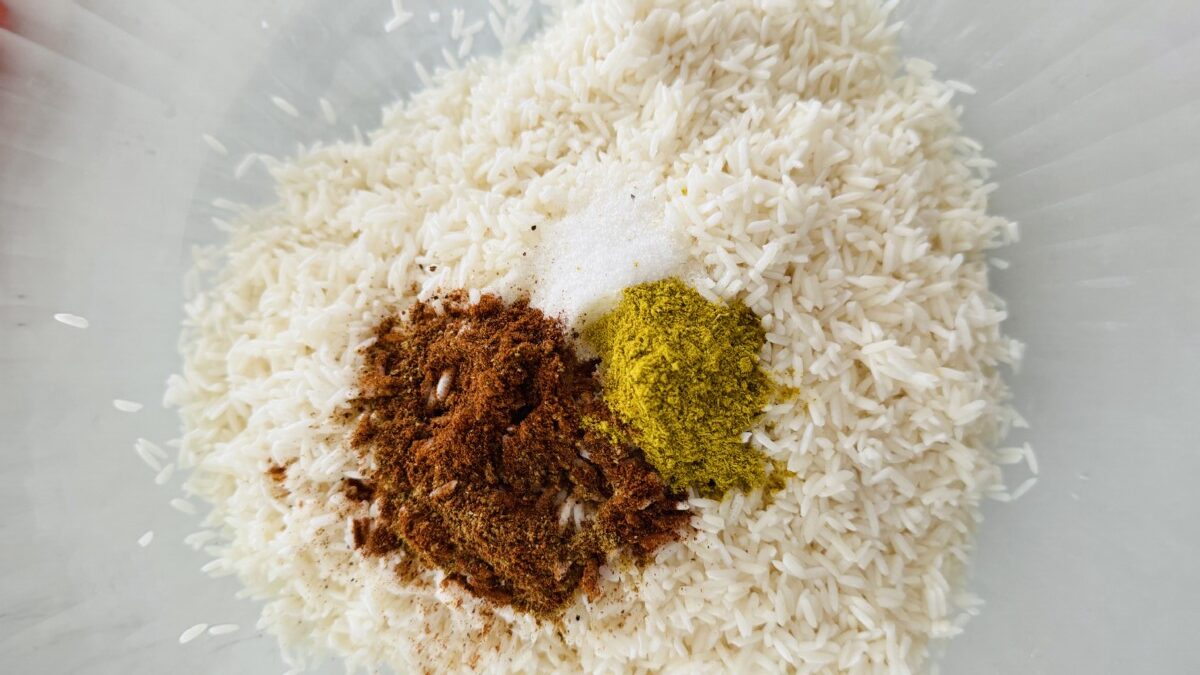
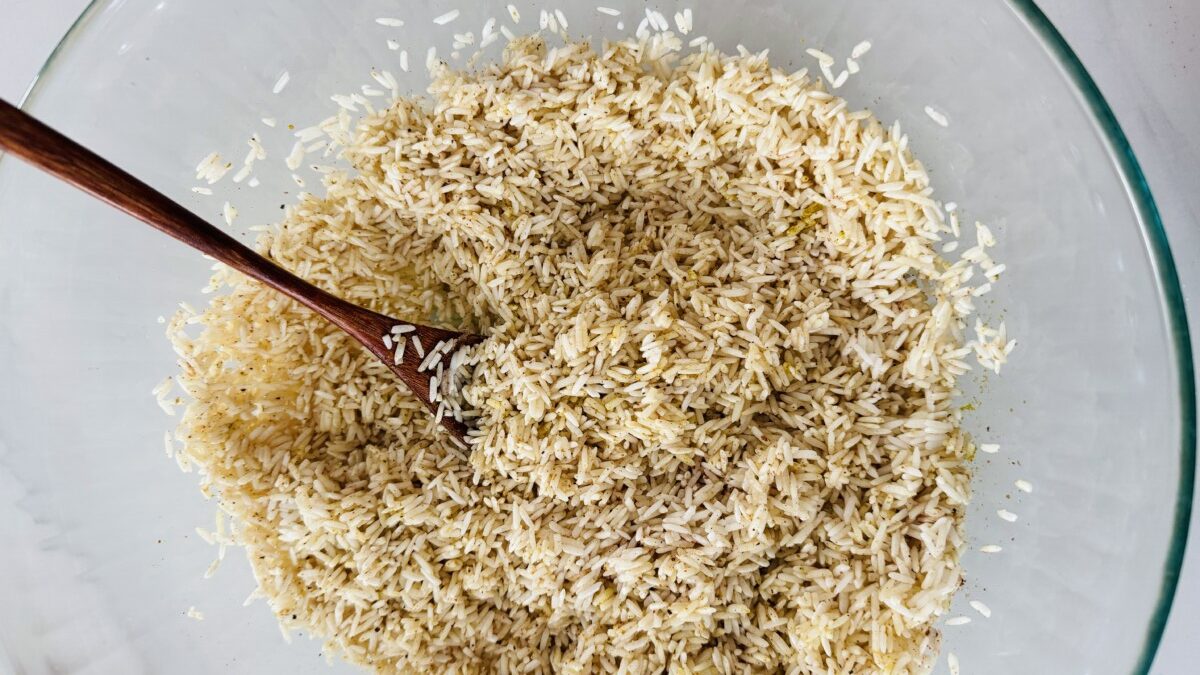
Season the drained rice with 1 tablespoon Baharat, 1 tablespoon Hawaj, and ½ tablespoon salt. Stir to evenly coat the grains with the spices.
Remove Chicken and Strain the Broth
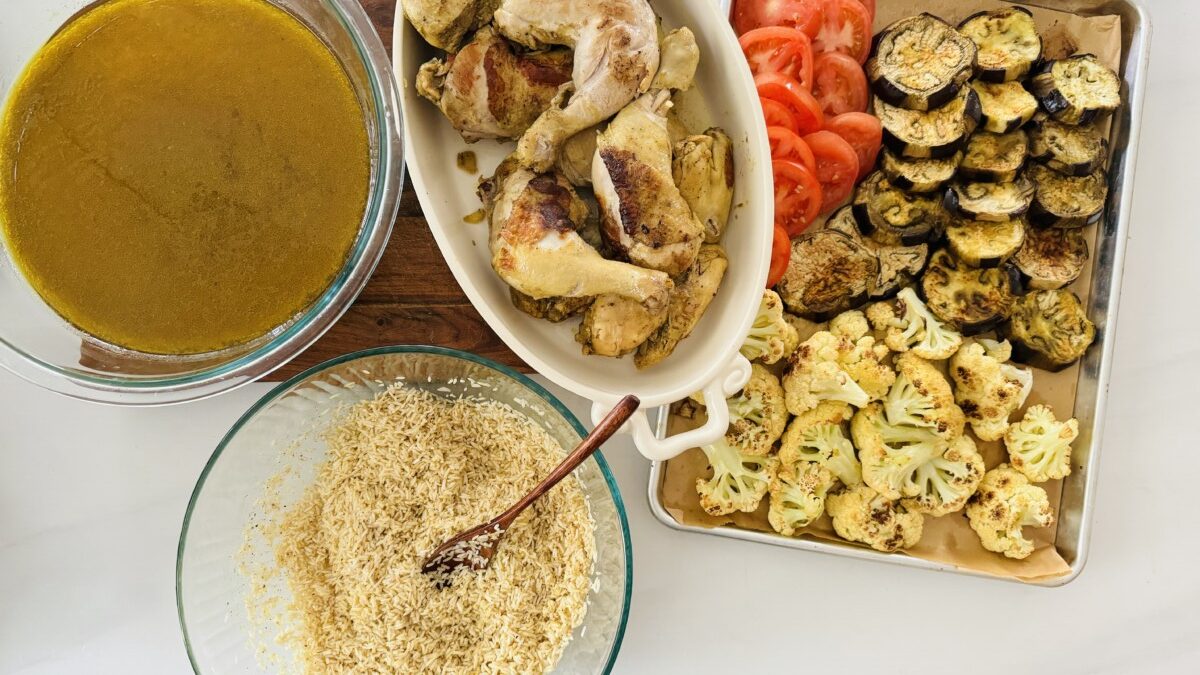
Measure out 4½ cups of the broth to use when cooking the maqluba (add a little water if you’re slightly short).
Begin Layering the Maqluba
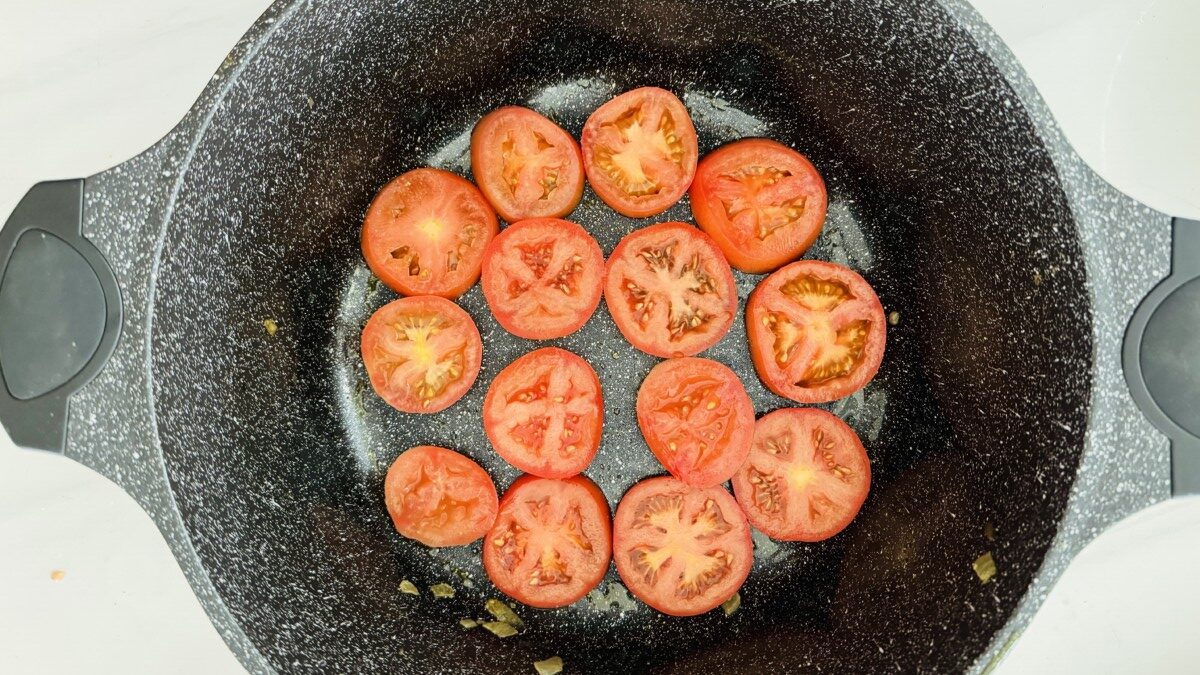
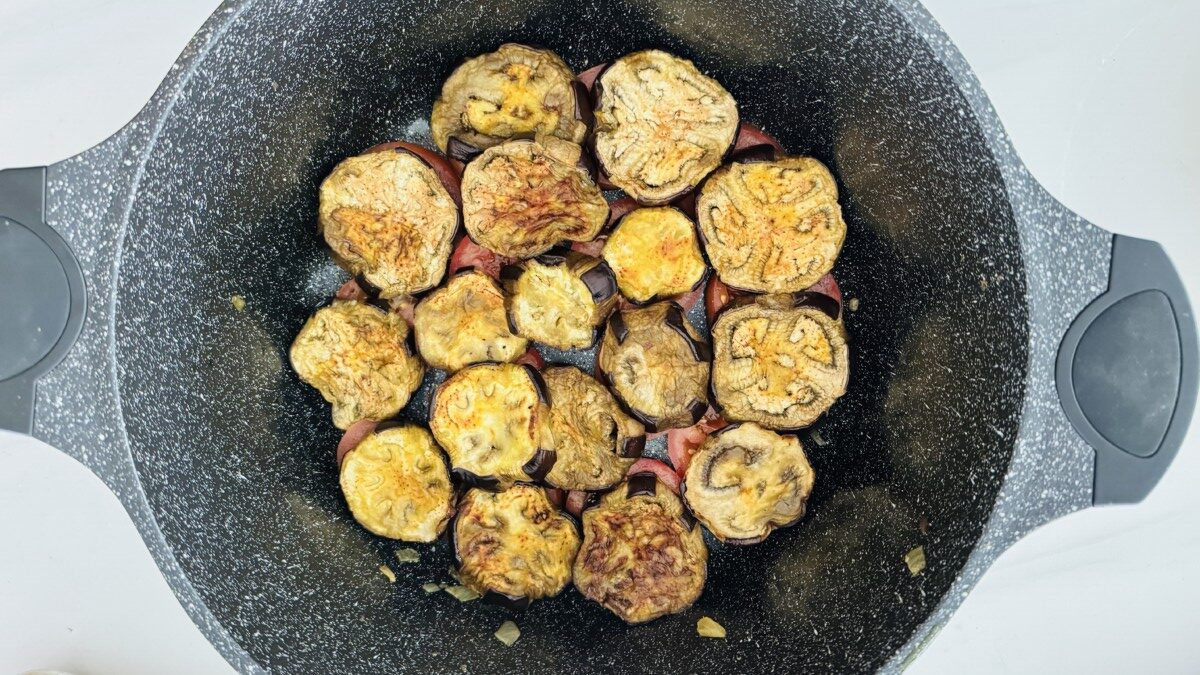
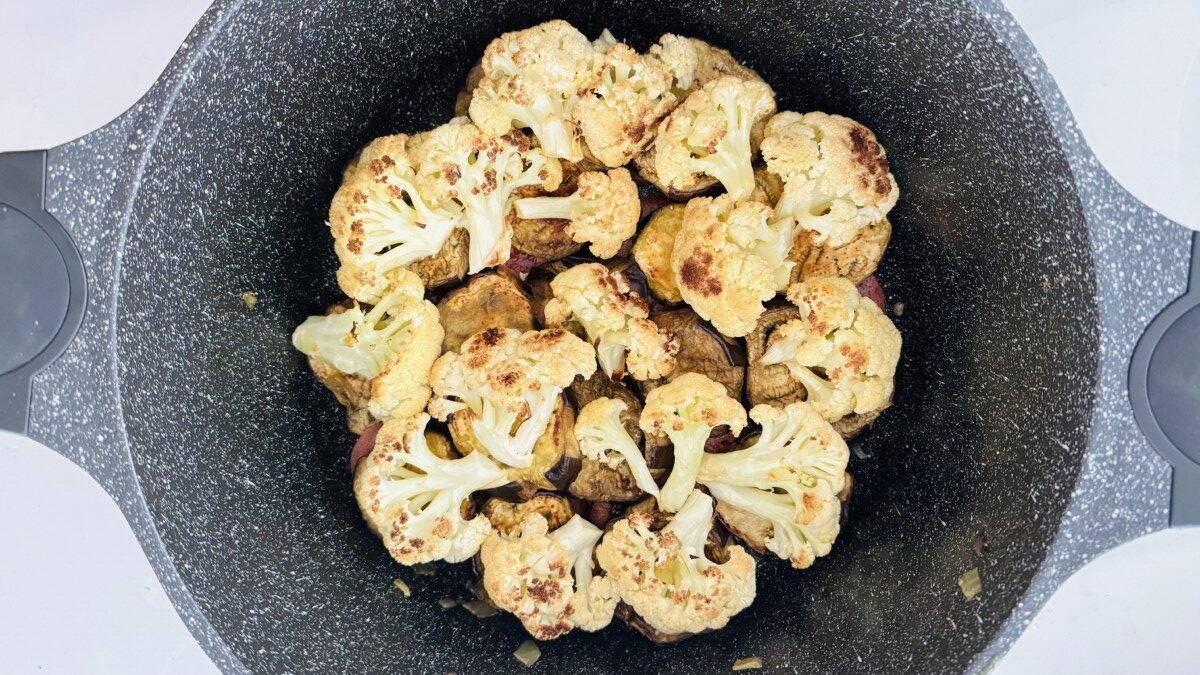
Add Chicken and Rice Layers
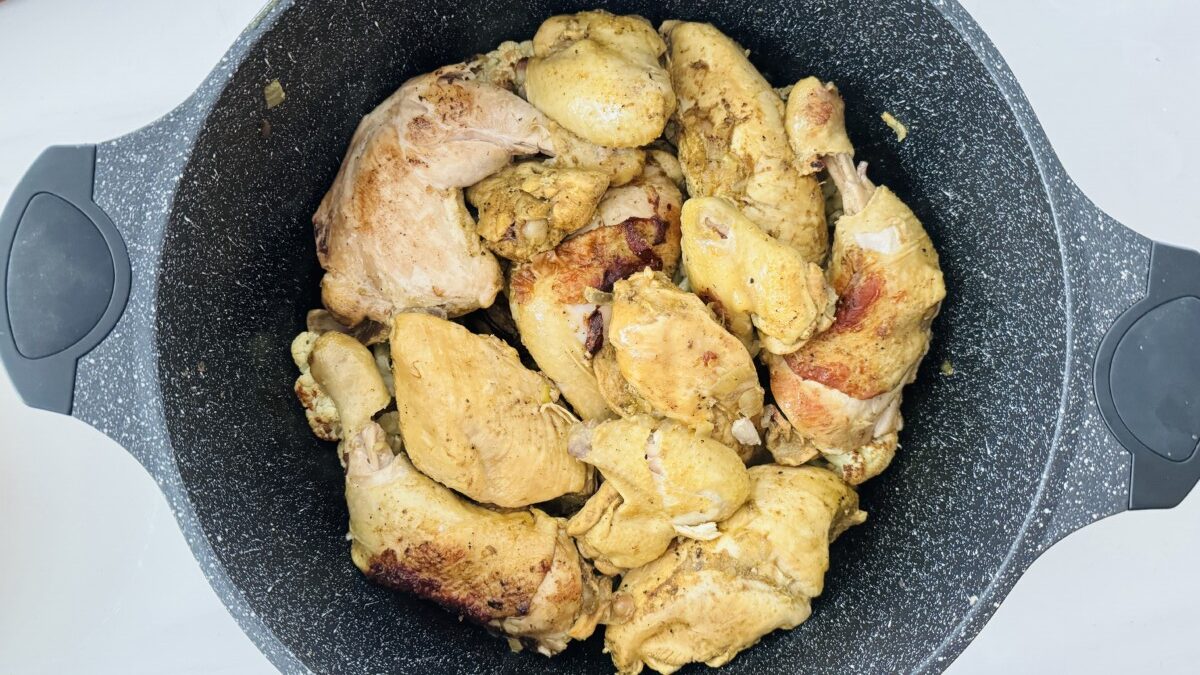
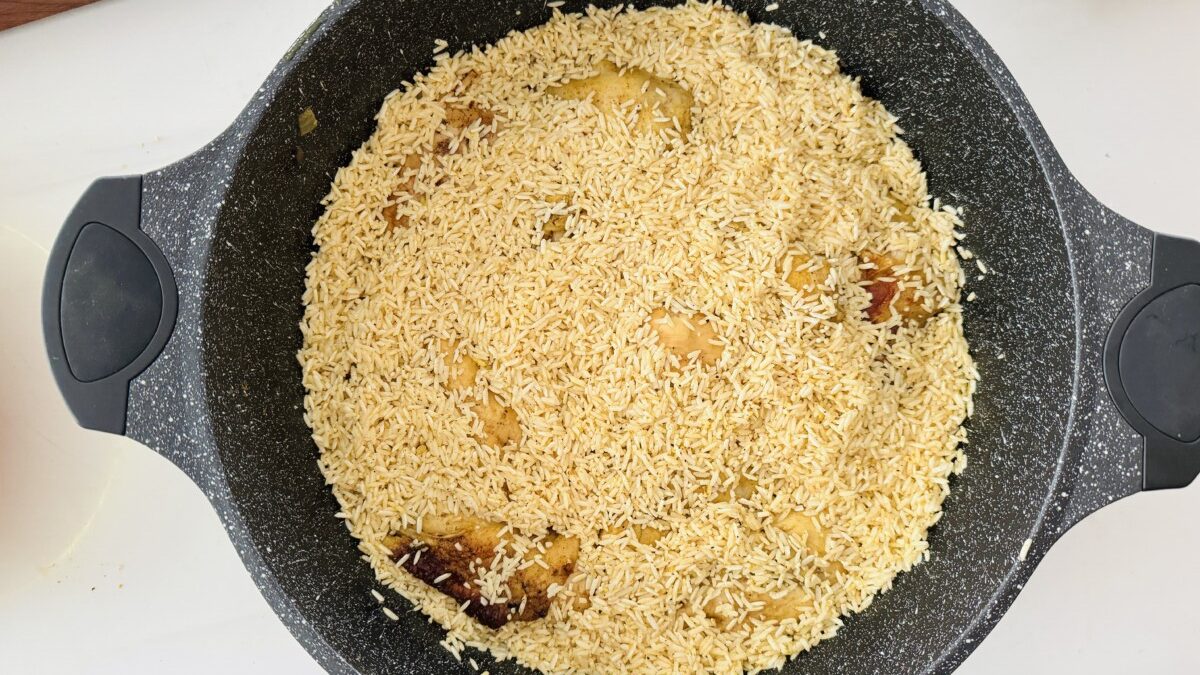
Add Broth and Cook the Maqluba

Pro Tip: After about 20 minutes of simmering, remove the plate to let some steam escape. This helps prevent the rice from becoming too soft or mushy.
After 45 minutes, check to see if the rice is fully cooked and has absorbed the liquid. Use a fork to gently peek inside or check along the side of the pot. If needed, simmer for a few more minutes until the rice is tender and fluffy.
Rest and Flip the Maqluba
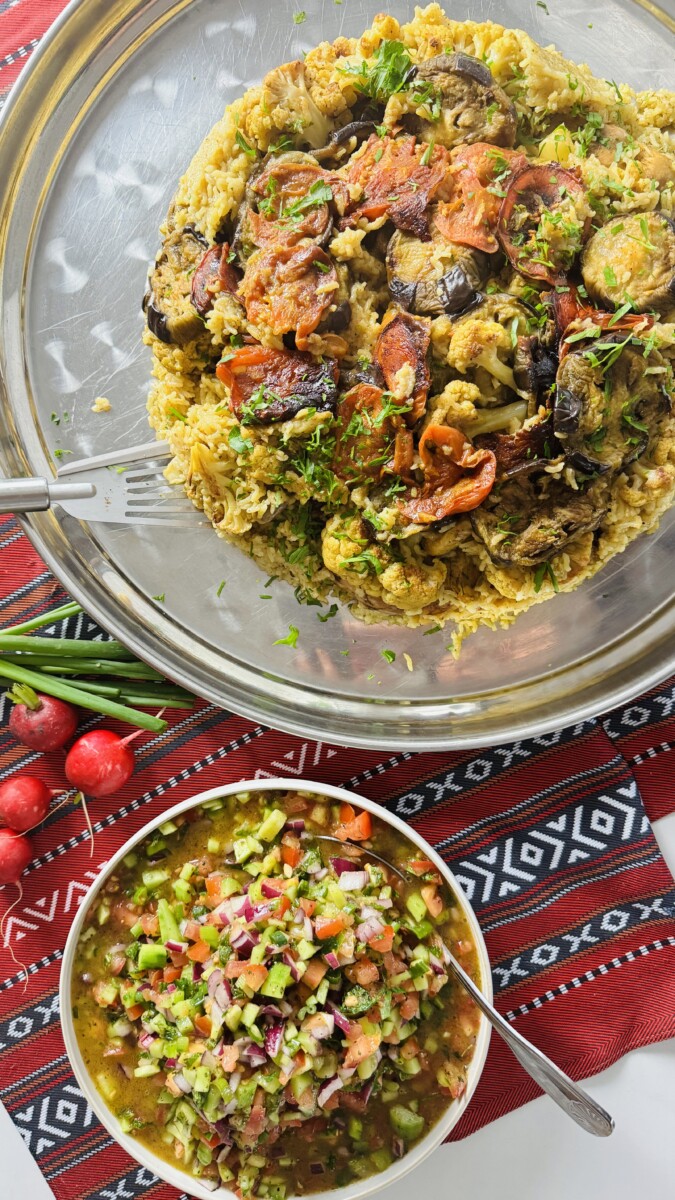
When ready, carefully invert the pot onto a large serving platter.The Maqluba should release smoothly—don’t rush this step. revealing its stunning, layered design.
Need help with the flip? Check out “The Maqluba Flip” section below for detailed, step-by-step instructions to pull it off like a pro!
Garnish and Serve
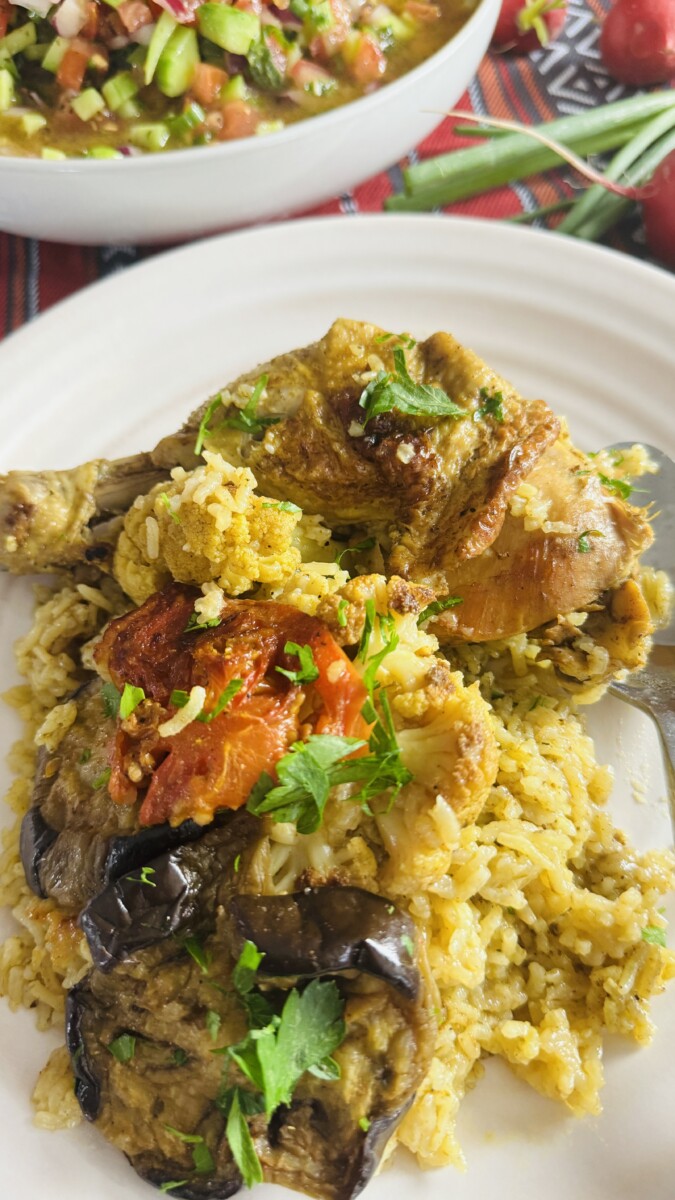
Ingredients:
| 2 whole chickens, cut into quarters or smaller pieces (about 3.5 lbs each) | |
| 2 whole large size eggplants, partially peeled and cut into 1-inch rounds | |
| 1 whole head cauliflower , cut into medium florets | |
| 4 large tomatoes, sliced | |
| 2 large onions, chopped | |
| 3 cups jasmine rice | |
| 6 tablespoons olive oil divided (3 reserved) | |
| 5 cups water or broth ( vegetable, or chicken ) | |
| Chopped parsley for garnish |
Spices:
| 2 cinnamon sticks | |
| 3 bay leaves | |
| 3 tablespoons Baharat spice blend (1 reserved) | |
| 2 1/2 tablespoons Hawaj spice blend (1 reserved) | |
| 2 tablespoons salt, divided (½ reserved) | |
| 1 1/2 teaspoons black pepper |
Preparation
Cut the chicken into serving-sized pieces.Rub them with salt and a splash of vinegar to clean, then rinse thoroughly under cold water to remove any residue.
Partially peel the eggplants and slice them into 1-inch rounds. Sprinkle generously with salt and let them sit for 20 minutes to allow the bitterness and excess moisture to sweat out. Meanwhile, preheat your oven to 425°F (220°C). Rinse and pat the eggplant slices dry, then arrange them on a parchment-lined baking sheet. Drizzle with 2 tablespoons of olive oil and roast for 30 minutes, flipping halfway through. Set aside once golden and tender.
While the eggplant is roasting, cut the cauliflower into bite-sized florets. Toss with 1 tablespoon of olive oil, then spread onto a parchment-lined baking sheet. Roast for 30 minutes, or until golden and lightly crisped. Set aside.
In a large pot or Dutch oven, heat 3 tablespoons of olive oil over medium-high heat. Add the chopped onions and sauté for about 4 minutes until softened. Add the cinnamon sticks, bay leaves, 2 tablespoons of Baharat, 1½ tablespoons of Hawaj, 1 tablespoon of salt, and 1½ teaspoons of black pepper. Stir well to coat the onions in the spices, and cook for another 5 minutes until fragrant.
Add the chicken pieces to the pot and stir well to coat them in the spiced onion mixture. Brown the chicken on all sides for about 8–10 minutes, stirring occasionally, until lightly golden. Pour in 5 cups of water, then bring the mixture to a boil. Once boiling, reduce the heat to low, cover the pot, and let it simmer for 25 minutes, allowing the chicken to cook through and the flavors to deepen.
While the chicken is simmering, rinse the rice thoroughly with cold water several times until the water runs clear. Soak the rice in fresh water for 20 minutes, then drain well. Season the drained rice with 1 tablespoon Baharat, 1 tablespoon Hawaj, and ½ tablespoon salt. Stir to evenly coat the grains with the spices.
Turn off the heat under the pot. Using a strainer or slotted spoon, remove the chicken pieces and set them aside in a bowl. Carefully strain the broth into a separate bowl or large measuring cup. Measure out 4½ cups of the broth to use when cooking the maqluba (add a little water if you’re slightly short).
Using the same pot (no need to wash it), start assembling your Maqluba. Begin with a layer of sliced tomatoes at the bottom. Next, evenly layer the roasted eggplant, followed by the roasted cauliflower. Spread and press the layers down gently to help them stay compact during cooking and flipping.
Place the cooked chicken pieces evenly over the roasted vegetables in the pot. Then, carefully spread the seasoned rice over the chicken, making sure it forms a smooth, even top layer.
Place a heat-resistant plate over the rice to gently weigh it down. Carefully pour the reserved 4½ cups of broth over the top, pouring slowly around the edges. This helps avoid disturbing layers. Bring to a boil, then reduce the heat to low, cover with a lid, and simmer for 45 minutes. Pro Tip: After about 20 minutes of simmering, remove the plate to let some steam escape. This helps prevent the rice from becoming too soft or mushy. After 45 minutes, check to see if the rice is fully cooked and has absorbed the liquid. Use a fork to gently peek inside or check along the side of the pot. If needed, simmer for a few more minutes until the rice is tender and fluffy.
Turn off the heat and let the Maqluba rest in the pot for 20 minutes—this helps the layers settle and makes flipping easier. When ready, carefully invert the pot onto a large serving platter.The Maqluba should release smoothly—don’t rush this step. revealing its stunning, layered design. Need help with the flip? Check out “The Maqluba Flip” section below for detailed, step-by-step instructions to pull it off like a pro!
Sprinkle the Maqluba with freshly chopped parsley for a burst of color and freshness. Slice and serve with yogurt, salad, or your favorite side—and enjoy every bite of this flavorful, comforting dish!
Recipe Tips & Suggestions
The Maqluba Flip: How to Nail the Grand Finale:
Troubleshooting Maqluba: Fixing Mushy Rice
Troubleshooting Maqluba: Fixing Dry or Undercooked Rice
Lack of Flavor:
Rice Ratio:
Rana’s Notes!
Nutrition Information
The information shown is an estimate provided by an online nutrition calculator. It should should not be considered a substitute for a professional nutritionist's advice.
See our full nutrition disclosure here.
Subscribe to my newsletter for authentic Mediterranean recipes, essential cooking tips, and the latest food news, all delivered directly to your inbox for FREE. Let’s create memorable dishes together!







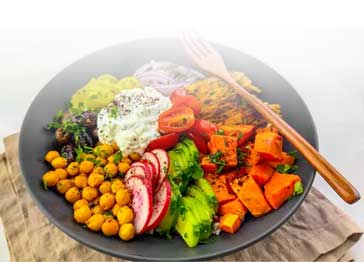
Let us know how your Maqluba turned out! Share your experience and tips in the comments below.